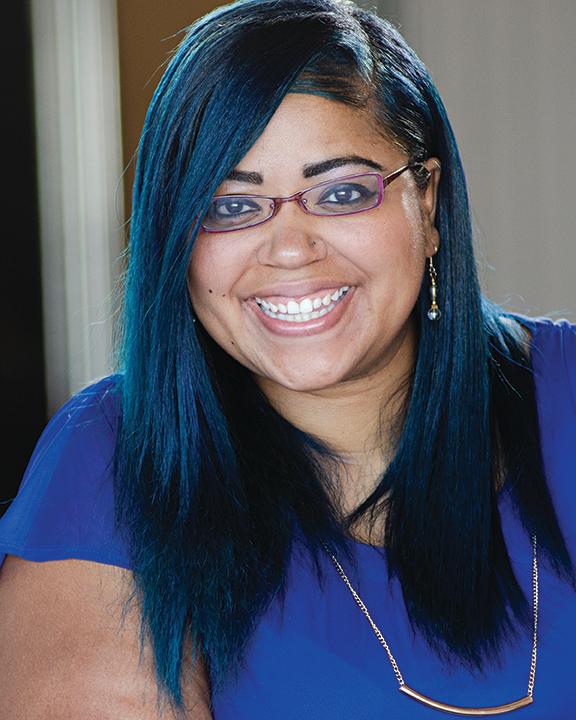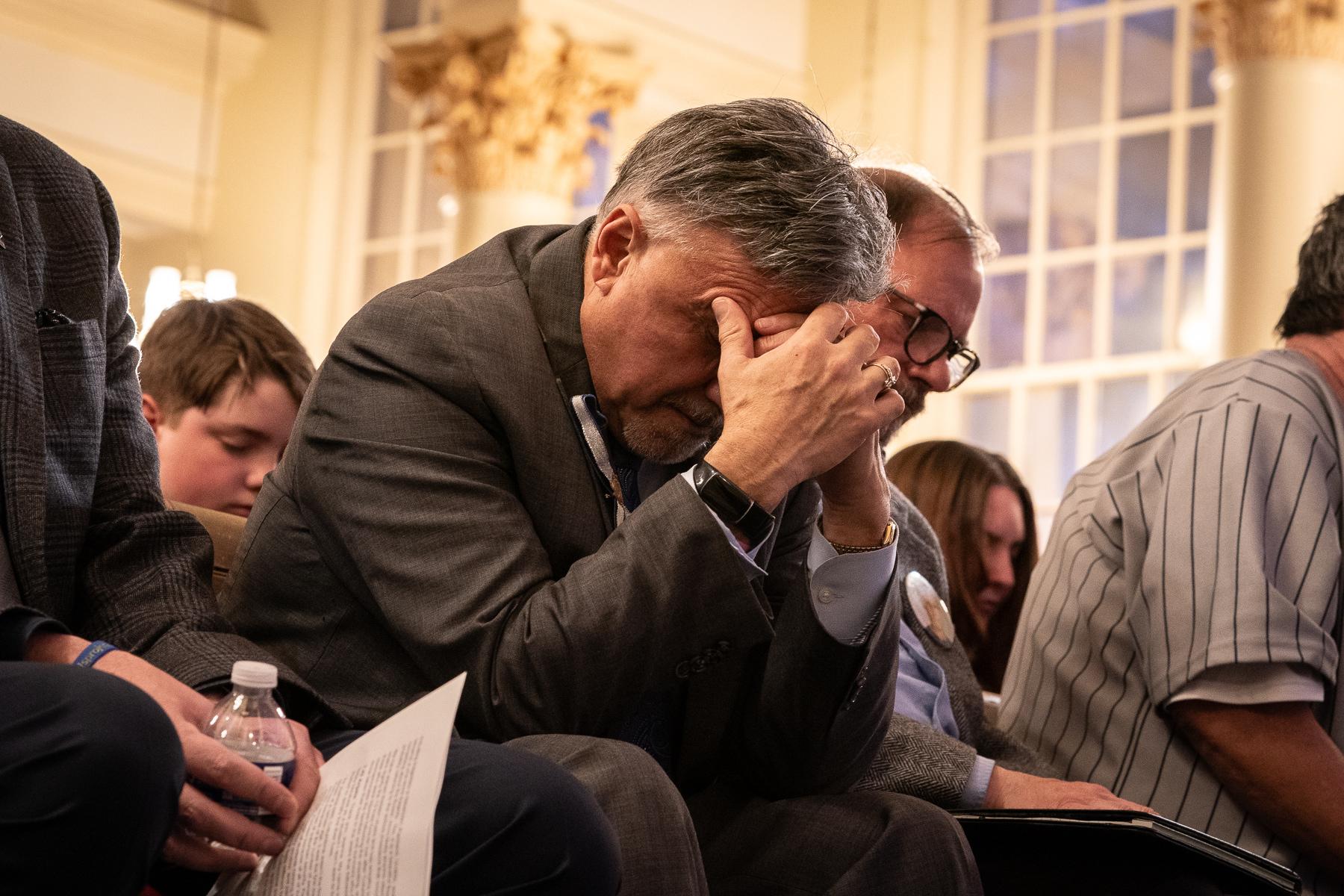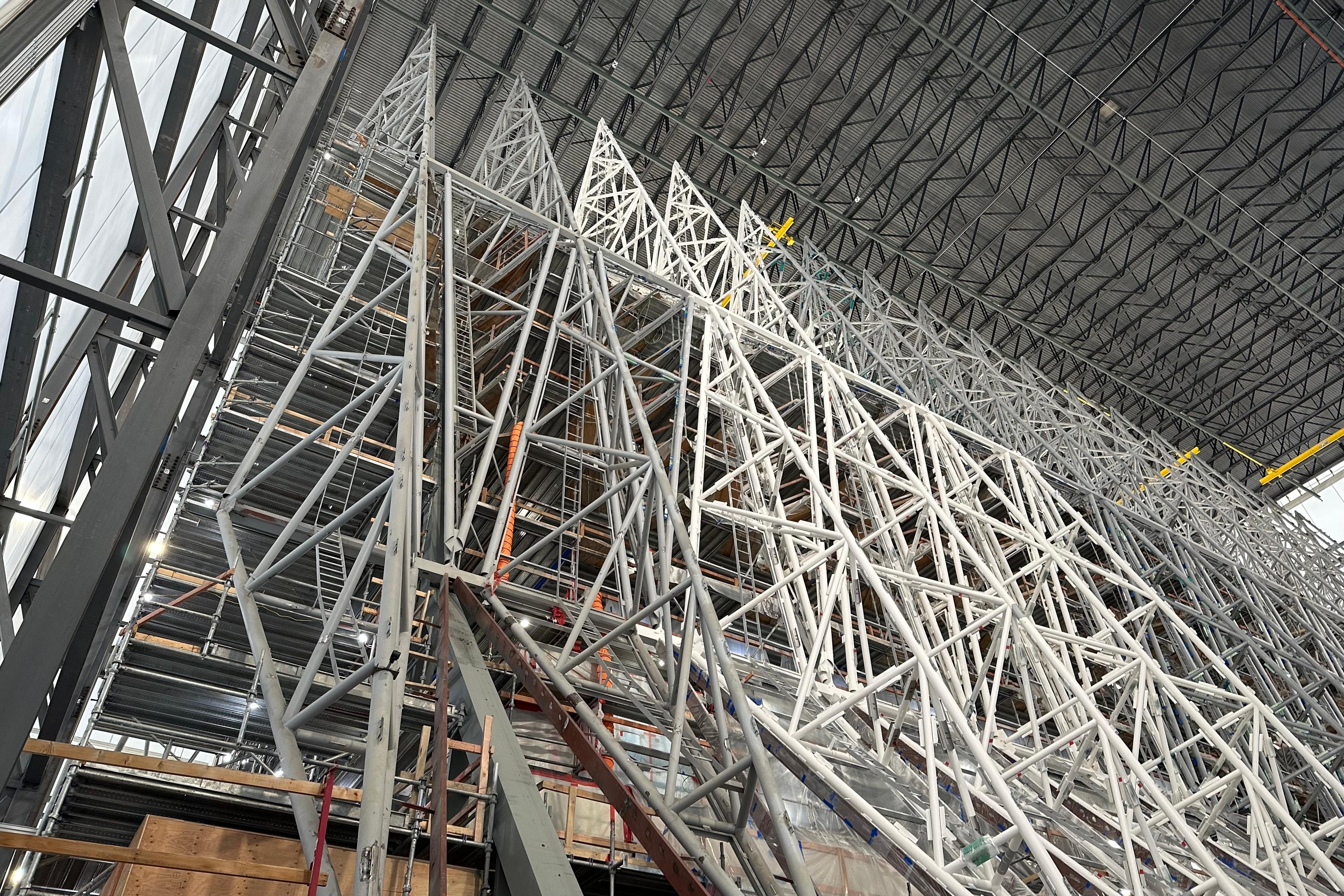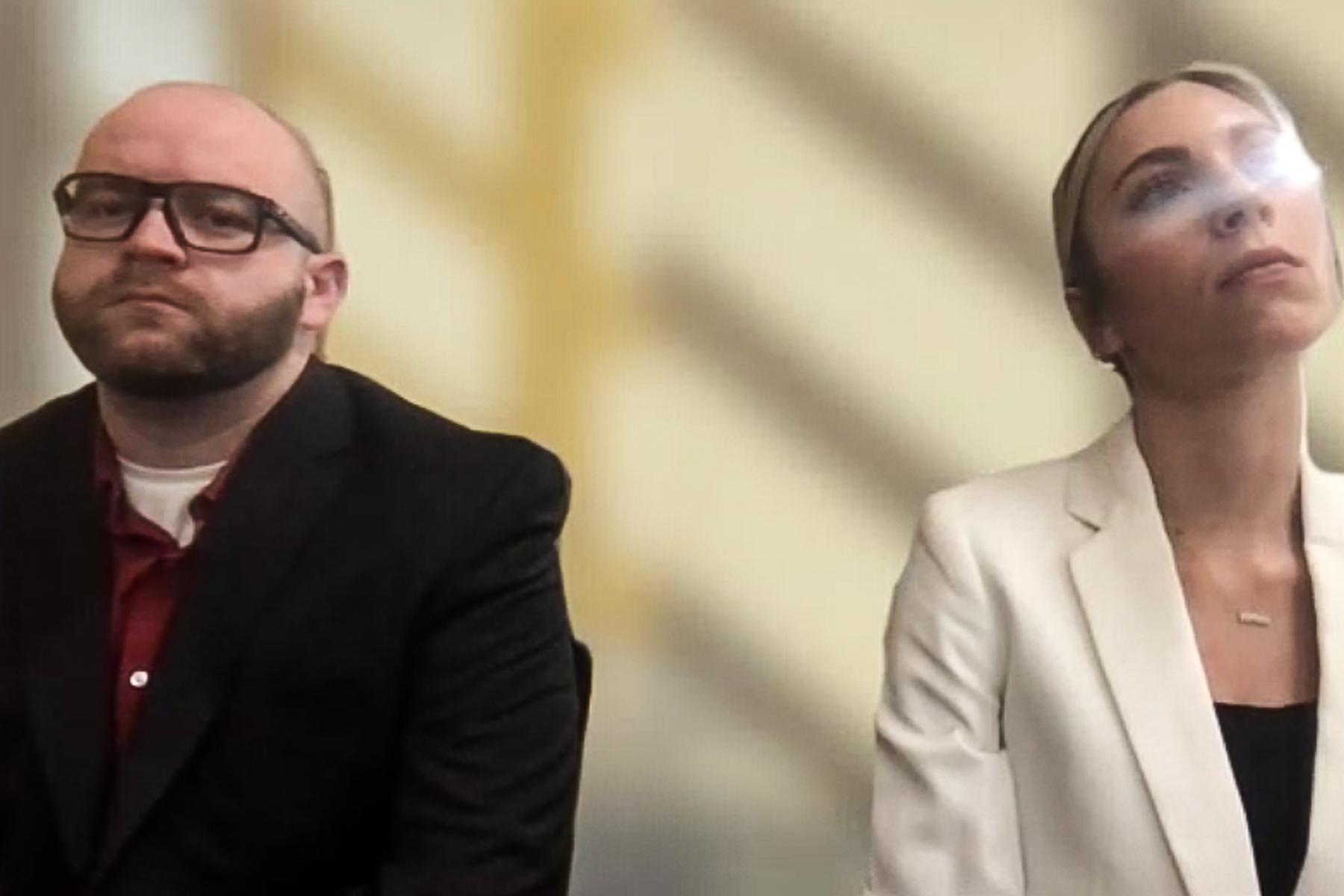
The Catholic Church has hit another watershed moment as it faces new allegations of systemic abuse. A grand jury investigation in Pennsylvania has brought attention to decades of abuse, while a high-ranking church official has called on Pope Francis to resign.
For Catholics in Denver, Archbisop Samuel Aquila sounded off his support for an inquiry into the latest accusations. Father Randy Dollins, vicar general for the Archdiocese of Denver, joined Colorado Matters to talk about the implications of the newest round of allegations.
This discussion continues tomorrow when members of the Survivors Network for those Abused by Priests (SNAP) join Colorado Matters.
Interview Highlights
On why the Pennsylvania grand jury ruling is upsetting, but "not all new":
" For me as a priest what's sad is to see that number 301 priests. I'm like, "Man!" 301 priests have done things, some that are completely atrocious. That's bad, but when you get to the numbers that, I think that's upsetting to me is, it's being treated as though these are all brand new revelations. The truth is, 85 percent of these were already reported, they were reported by the media. They were known from 2002, 2005, that time period. This is just a comprehensive review."
On how the Catholic Church has brought down rates of abuse in recent years:
"By requiring a thorough psychological evaluation at entrance, letters of recommendation, and a physical and criminal background check and all these kinds of things, that's just to get to become a seminarian. You have to go through an interview process after that. Once those things are all done, there's a continual kind of review process, and it's not short. I tell people I went to seminary for eight short years. It's not a short process."
On how abuse allegations impact his faith:
"I would say it hasn't rattled my faith in Jesus Christ or in the Church or in the truth of what my vocation is supposed to be. But what it does is you say, man. For so long, you always think the bishops are the great pillars of the church that help lead us and then you realize they can be as sinful as I can be or any other person, and unfortunately, they can be deceitful, too. So, I think, too, that it's kind of caused some people to just say, 'Man, no one is above suspicion,' and that doesn't mean that we should just assume that anyone has done something wrong. Like I said we have to have probable cause that someone's done something wrong before we investigate them. But it's a tough reality. It's a tough pill to swallow and it's changed my prayer a little bit because I need a little bit more hope and enthusiasm these days."
Full Transcript
Ryan Warner: FRD, welcome to the program. Father Randy Dollins: Thank you. RW: Tell us more about the Denver Archbishop's letter, his thinking behind it. FRD: I think that there's a lot of people in the church, rightfully so who were saying these seem like some pretty serious accusations. We want to know what's our archbishop going to do, what are the bishops going to do? What's a response? Luckily, the Executive Committee of the United States Conference of Catholic Bishops made a pretty strong statement and the bishop kind of just said, "I agree with them that a thorough investigation with appropriate authority and appropriate autonomy should be conducted because we want answers that are conclusive and based on evidence to these allegations that have been presented." RW: Members of the Survivors Network for those Abused by Priests, SNAP, have called for every state's attorney general to investigate. I'll say that Colorado's AG, Cynthia Coffman, has said that her office has only limited jurisdiction that they're taking a close look at what role they might play. But Coffman sent us a statement saying the Catholic Church has proven itself incapable of safe guarding the vulnerable in its flock from sexual assault and a lay commission of practicing Catholics is exactly the kind of insular thinking that has protected pedophiles and predators. Speak to those who think that any Catholic investigation of the Catholic Church is wrongheaded. FRD: Okay. Well those are some really strong words that she used in that statement that just came out. I would say that some of the people who have come to me are Catholics who love the Church and they're mad about the situation. I think that they would probably be some of the best people to do an investigation because their heart's in it because of their love for the Church and of Jesus Christ. But you know, someone said maybe people not from the same region who are Catholics should do an investigation of a different region or something like that. So I don't know how you would structure it, but to just dismiss it, any Catholic doing the investigation wouldn't be a good person to do it, I'd say there's probably another side to that, that they might have more passion to do it because they want to see their Church purified and clean. RW: Would you welcome an investigation by the State Attorney General? FRD: Well, I would say this because I don't want to tell the Attorney General how to do their job. But my understanding would be that before law enforcement does an investigation into whether or not a law has been broken, that there has to be probable cause that a law has been broken. I would say in the Archdiocese of Denver, it's troubling to hear, I don't know exactly the context of what the Attorney General was talking about when she said the church has proven itself incapable of safeguarding the vulnerable because in the Archdiocese at Denver, since 2002, which is kind of the watershed moment of "there's a problem and we need to institute things to protect children." It's kind of that turning point. What's happened since 2002? We have no new allegations of abuse of minors by a priest since 2002. RW: You were saying in the Denver Archdiocese. FRD: In the Denver Archdiocese. That would tell me to say that this is an institution that is responsible and reliable, that has actually done a great deal of work to safeguard the vulnerable. And, our track record is kind of showing itself. So, what is the probable cause for an investigation? With Pennsylvania, one of the things that came out with that report ... RW: The grand jury's report? FRD: Yeah, the grand jury report, was to say, and this is one of the unfortunate parts about this. First thing I want to say because whenever you talk about this report people say, "Oh, you don't care about the victims." That's the thing that upsets me the most, is that so many people were victimized. The initial reports are saying 1,000. I think that they've kind of gone back through that and it's actually about 680, but one is too many, one is too many. It's so sad that that has happened. For me as a priest what's sad is to see that number 301 priests. I'm like, "Man!" 301 priests have done things, some that are completely atrocious. That's bad, but when you get to the numbers that, I think that's upsetting to me is, it's being treated as though these are all brand new revelations. The truth is, 85 percent of these were already reported, they were reported by the media. They were known from 2002, 2005, that time period. This is just a comprehensive review. Okay, I think a comprehensive review is good because then we can learn more about causes and different things are happening. But this is not all new. RW: What is the biggest change you made post 2002 that you think brought down the numbers? FRD: Well, I don't know that there's any one thing but there's a number of things. First is the Safe Environment Program. We have a problem in the world as humans. It's called the Bystander Effect. They'll say that someone whose car breaks down on a busy highway, everyone thinks, ah, someone else is going to get to it. Someone else is going to do it. And if you break down in the middle of nowhere, then someone will pull over and help you. We have this problem where people see stuff, but they don't say anything about it. One of the things about our Safe Environment Training is that anyone who has any work with children, so clergy, staff members, volunteers were given a thorough training that shows what are signs of grooming? What are signs of neglect? What are signs that abuse are happening? What do they look like, interviews with people who have done abuse who are kind of telling what they used to do. And it's a tough topic, but it teaches people that, and then they're given these in the means, this is what you should do if you suspect something to report. It's essentially creating an environment where adults know what to look for and they're creating a safe environment because they're reporting if they see something. RW: You say grooming. In this context that's the idea of someone as an authority figure grooming a young person and manipulating them, taking advantage of them. FRD: Precisely. RW: What is being done to prevent people who might be predatorial from entering the priesthood in the first place? FRD: Yeah and this is what I would say. The reason why you see the decline after 1979 and in other places is because of just advances in psychology and in kind of the process when the church started to see there's problems here. Even though there was a lot of cases of them covering up, they said, "We gotta change the entrance requirements." So by requiring a thorough psychological evaluation at entrance, letters of recommendation, and a physical and criminal background check and all these kinds of things, that's just to get to become a seminarian. You have to go through an interview process after that. Once those things are all done, there's a continual kind of review process, and it's not short. I tell people I went to seminary for eight short years. It's not a short process. RW: That's like med school. FRD: Yeah. You're evaluated by [unintelligible], but also honestly, the one that gets you the most is the peer evaluation. Before you become a deacon, which you become the last year, all your peers get to do an anonymous write-up on you, and you have to read it. And that sucks because there might be a guy that you had a disagreement with or things like that, and that's taken into evaluation. Then a Board from the seminary decides whether or not you would move on to orders and get ordained as a deacon. I would say that these things that are in place now are a lot better screening and that the guys who are becoming priests today are becoming priests because they actually know what it means. They love the Church. They want to be an image of Jesus Christ in the world, and they don't have an ulterior motive of what they might be able to do. RW: If a priest is accused, what are the steps that you take? FRD: Accused of abuse of a minor? RW: Yeah. FRD: Yeah, okay. First of all is to say, "Is it a credible claim?" RW: Who decides that? FRD: It seems like they say, "This priest did this in this year," and if that priest wasn't even ordained yet, so if it's possible that that priest was at that church at that time, then what we would do, the first thing we'd do is remove that priest from ministry. Now assuming innocence before, you know, proving guilty, but is to say for the protection of any other potential victim, but also for the protection of that priest and his good name, is to say we'll remove him from ministry so that a proper investigation can take place. RW: Removed, not shifted to another church. FRD: Precisely. When someone's being investigated, they're never allowed to go do ministry in some other place. They would just kind of be, for the lack of better terms, just staying at the home, but not going to the Church. RW: Now that wasn't always the case as we know in history, but you were saying that was an important change that came, I'm guessing, by 2002. FRD: Yeah, for sure with everyone by 2002. I think the great thing that I would be able to say to the people of the Archdiocese of Denver, the history that I've learned is that when Archbishop Stafford came, he actually instituted rules that later became the standard, but he instituted them really early. Starting as early as 1991 with criminal background checks and reporting to law enforcement and then actually coming up with a response team that would interview victims to help them, but also to investigate the situations, as early as 1995. RW: At what point would you involve law enforcement? FRD: If there's an accusation that abuse of a minor has taken place, law enforcement should be involved within 24 hours. RW: I see, so from the earliest stages of that investigation. FRD: Precisely. That's the standard for Colorado mandatory reporters which we all, as priests, are. RW: Who would conduct the investigation? FRD: So it would be one, law enforcement, if it's an active, if we're looking at a criminal situation, law enforcement would do it, and we would be trying to cooperate with law enforcement. I think we have a good track record of cooperation with law enforcement. RW: I want to read one line from the archbishop's letter supporting the idea of an independent investigation. Archbishop Aquila says, "It is Jesus who will see us through this time of trial and purification." What do you take that to mean? FRD: I think that the Church, we believe the Church is founded by Jesus Christ, and as an institution, it is the thing that's going to get us to heaven essentially, right? But it's run by imperfect people. We know, throughout the history of the church that sometimes there is egregious sin committed by people who are in positions of authority. Clearly what's happening is, and we see this even from what has been revealed about Archbishop McCarrick, and about these priests who come out in these reports, is that, yeah, there's some bad stuff going on in the Church, and there's a need for a purification. So it's to say that because people in authority have done something wrong, does that suddenly make the salvation of Jesus Christ on the cross no longer valid? No, it's still valid. That's the standard, but we need to be purified of the sins that are being committed by some of the people in hierarchy. RW: What would you say to someone listening, who might have been abused in the Church, and who has not come forward? Maybe they're five year old allegations, maybe they're 25 year old allegations FRD: Well, the first thing I would say is, that I'm sorry, because as a priest, it hurts me to know that someone might have been abused by a priest, in a real way it does. So I would say sorry. Then I would say to them, "The healing you need is going to be on the other side of dealing with this." They might not have come forward because they know that it's going to stir stuff up, and it's going to be difficult. But what I know is, the most important things we've ever accomplished in our lives often come on the other side of a struggle. So I would say, "What is the support you need to go through this, to bring it up?" Because if someone's in active ministry that abused them, I'd say, "You gotta come out, because I don't want other people to get hurt." But if the person's even dead, or whatever, I'd say, "The healing you need is going to be working through this." I would want to help them. Any way I could help them, and give them, if they need anonymity. Sometimes people think, "Oh, people want to just be out there and in the news," I think some people are really hurt and they said, "This is a deep wound, and I don't want everyone in my life to know that I was abused." I want to meet someone where they're at, and give them all the resources they can for healing, because the truth is, it hurts me to hear about cover-ups, and people covering their butts and things like that. My goal is anytime we get this, is okay, how are we going to make sure we take care of the victim? How are we going to bring a priest to justice if he's alive, if he's in active ministry or whatever? But first, and foremost, taking care of the victims. RW: Now, SNAP makes a recommendation that the Church stop fighting changes to the statute of limitations when it comes to these types of allegations, speak to that. FRD: People that I know in law enforcement, they're going to tell you that there's reasons why statute of limitations exists. Memories fail. Remembering a crime from 20 years ago, 30 years ago, the details, who's involved, are people even still alive, a lot of things like that, to say that that is, it's difficult to remove statute of limitations, and then assume that you're going to get a just process. RW: But isn't also true, just based on what you told us, that a lot of these experiences simmer for years, decades, beyond perhaps statutes of limitations before someone feels comfortable speaking? FRD: Yeah, that is true, but I would say, and speaking for the Archdiocese of Denver, and other dioceses that I've heard, that they have the same concern I do, is that, if the concern is helping the victims, I would say the archdiocese, regardless of statute of limitations for civil lawsuits, or criminal, has said, "Anyone who has been abused, come to us, we'll work with you. We want to help you in whatever way we can." RW: But without the force perhaps of the law. FRD: Well, yeah, I mean, it's different if we're talking about criminal statute of limitations, or civil. I think when people say statute of limitation it's usually around civil, and so I think that the idea is plaintiff's attorneys suing the Church for negligence and getting huge settlements. I think that that's made a lot of plaintiff's attorneys rich, but I don't know if that's made a lot of victims whole again. What I would tell anyone who says that they, and if it was beyond statute of limitations, and they live in Colorado, and it was a priest in Colorado who that they have an allegation of abuse, come forward, let us know. We'll still report it to the police, the police don't throw it out, they can't prosecute for a criminal offense, but they'll still help with the investigation. We'll know , but we want to make the person whole. RW: But as for changing the statute of limitations, you think that that might result in injustice? FRD: Yeah. In some cases, yeah. I mean, if you look at the situation where it happens in other places, I don't think that the wholeness of people who have been abused has been the ultimate outcome there. RW: Why do you think this happens? Have you given thought to why? FRD: To why someone abuses? RW: Mm-hmm (affirmative). FRD: I think, and well, I don't have enough evidence from before what we might call the sexual revolution, but I think that we're on a slippery slope of our sexuality and that has gone away from something that is procreative and in a union between a husband and wife. It's become much more just kind of dispersed in almost that things are just acceptable. I think that in our human sexuality, yeah, I'm just kind of shooting from the hip here. I think that it has opened the doors for things that weren't acceptable in the past. But I'm not a psychologist or a behaviorist or things like that, so I don't know if I have a good idea of what the cause might be. RW: I mean, do I hear you blaming homosexuality for this? FRD: No. No, I think that the reports show that many of the acts were male priests with post-pubescent male victims. That shows that that act itself is a predatory homosexual act in itself, but I don't think that this is, that I've said that this is a homosexual, I think it's a human sexuality problem. RW: Do you think it has anything to do with celibacy and whether meeting that standard is not possible for some and that it results in, I don't know, a kind of abhorrent sexuality? FRD: Yeah, it's interesting. I read someone that said, "The Church has to see that finally it's time to get rid of celibacy," and what's hard is even, and maybe you've heard this term, the John Jay report, which was an extensive report that looked at like 10,000 cases of abuse between 1950 and 2002. They tried to get to all the details and statistics behind it to understand better. Most of the cases average back in the 70s. Now, it doesn't say that there's not any newer ones, but there's kind of a hot spot around 1979, and you go out from there. And then they get less on each side. So, if priests who were living in this era were abusing more frequently than others, but in the last 20 years, Catholic priests are not being found of abuse, then it seems like a weird solution to say that currently, you have guys who understand celibacy, who live it, who would say it's fruitful and that it's part of what it means to be a Catholic priest, that the solution is to get rid of celibacy because it's a thing that was causing a problem 30 years ago. It doesn't seem honest reaction. RW: Should the Pope keep his job? FRD: Yeah, that's a big question. You're talking about the allegations that were raised by Archbishop Viganò. RW: Yeah. FRD: Yeah, and he basically unprecedented said, "I call for the Pope to resign." RW: I'll say that the archbishop here in Denver has said that he places a lot of faith in Viganò. FRD: Yeah. I mean, this guy's not a hack. Right? He was the Apostolic Nuncio for the United States. He's basically the lead diplomat for the Pope for the entire United States. RW: At the Holy City? FRD: Yeah. He's saying that he knows that these things happen, and they're pretty powerful accusations. So I think that it would be bold to ask if I think that the Pope should resign. I think that we deserve answers that are conclusive and based on evidence to the accusations that have been brought up. I'm disheartened when people say, "Oh, this guy can be disregarded." He was the Nuncio of the United States. Don't sweep him aside. RW: Father Dollins, has any of this rattled your own faith at points? FRD: It is tough. I would say it hasn't rattled my faith in Jesus Christ or in the Church or in the truth of what my vocation is supposed to be. But what it does is you say, man. For so long, you always think the bishops are the great pillars of the church that help lead us and then you realize they can be as sinful as I can be or any other person, and unfortunately, they can be deceitful, too. So, I think, too, that it's kind of caused some people to just say, "Man, no one is above suspicion," and that doesn't mean that we should just assume that anyone has done something wrong. Like I said we have to have probable cause that someone's done something wrong before we investigate them. But it's a tough reality. It's a tough pill to swallow and it's changed my prayer a little bit because I need a little bit more hope and enthusiasm these days. RW: Thanks for being with us. FRD: You bet. God bless you! |









